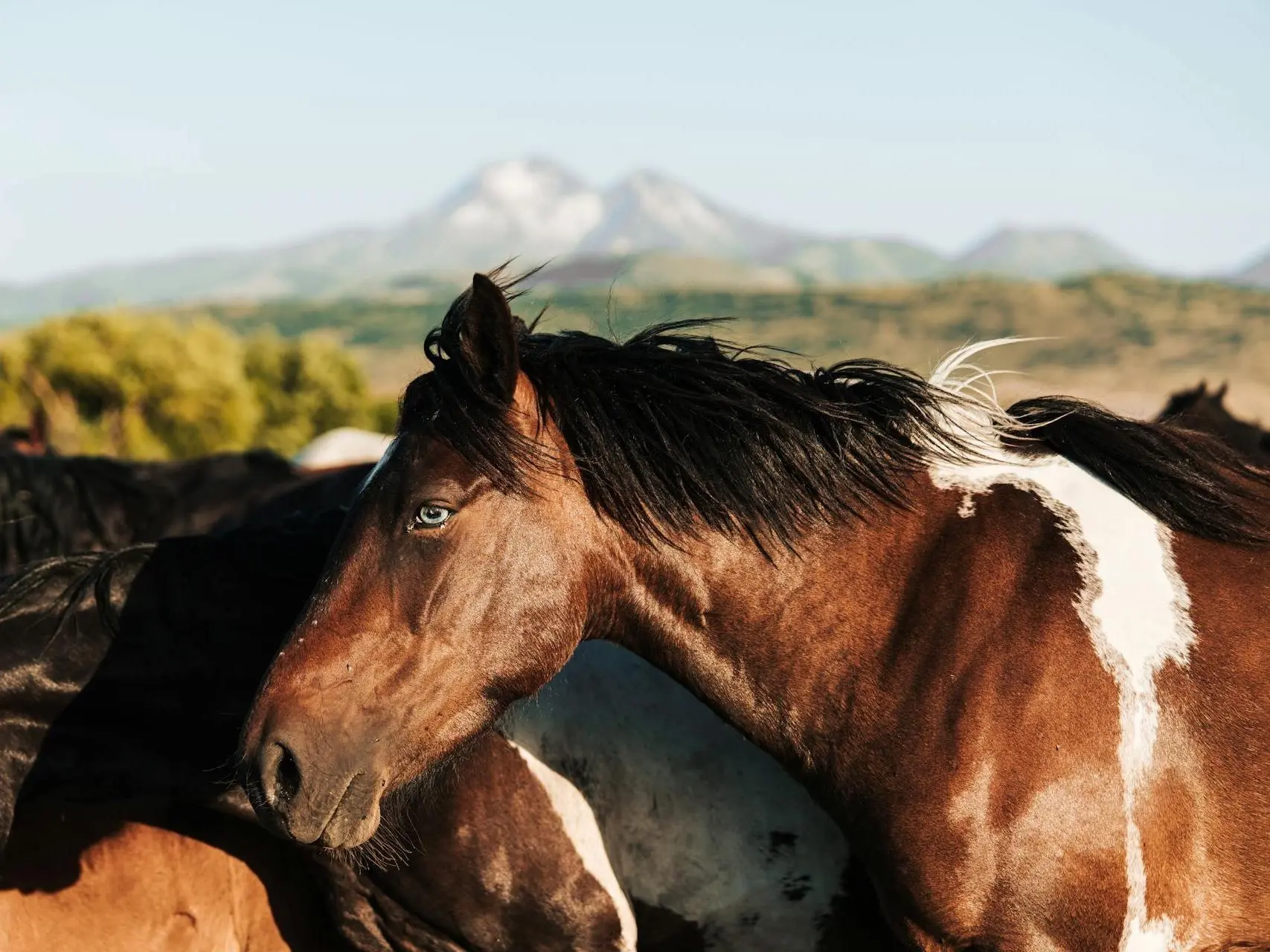
Paint Vs. Pinto
Paints and Pintos are not totally interchangeable, their differences lie in bloodlines and registration. Pinto is a blanket term used for a collection of similar white patterns that can occur in a wide variety of breeds. While the term Paint is used to describe pinto animals with either Thoroughbred or Quarter Horse bloodlines registered with the Paint Horse Registry. Most pintos are not Paints.
Piebald Vs. Skewbald Vs. Tricolored
Pinto terminology changes from region to region, however there are some fairly universal standards when it comes to white patterned horses. Piebald pintos are the result of a pinto white pattern on a black base and skewbald pintos are the result of a pinto white pattern on a chestnut, bay or brown base. Black and brown pintos can also be called tricolored.
Types of Pinto
Pinto white patterns have an affect on any base, modifier or dilution and come in perhaps the widest variety of colors & patterns.
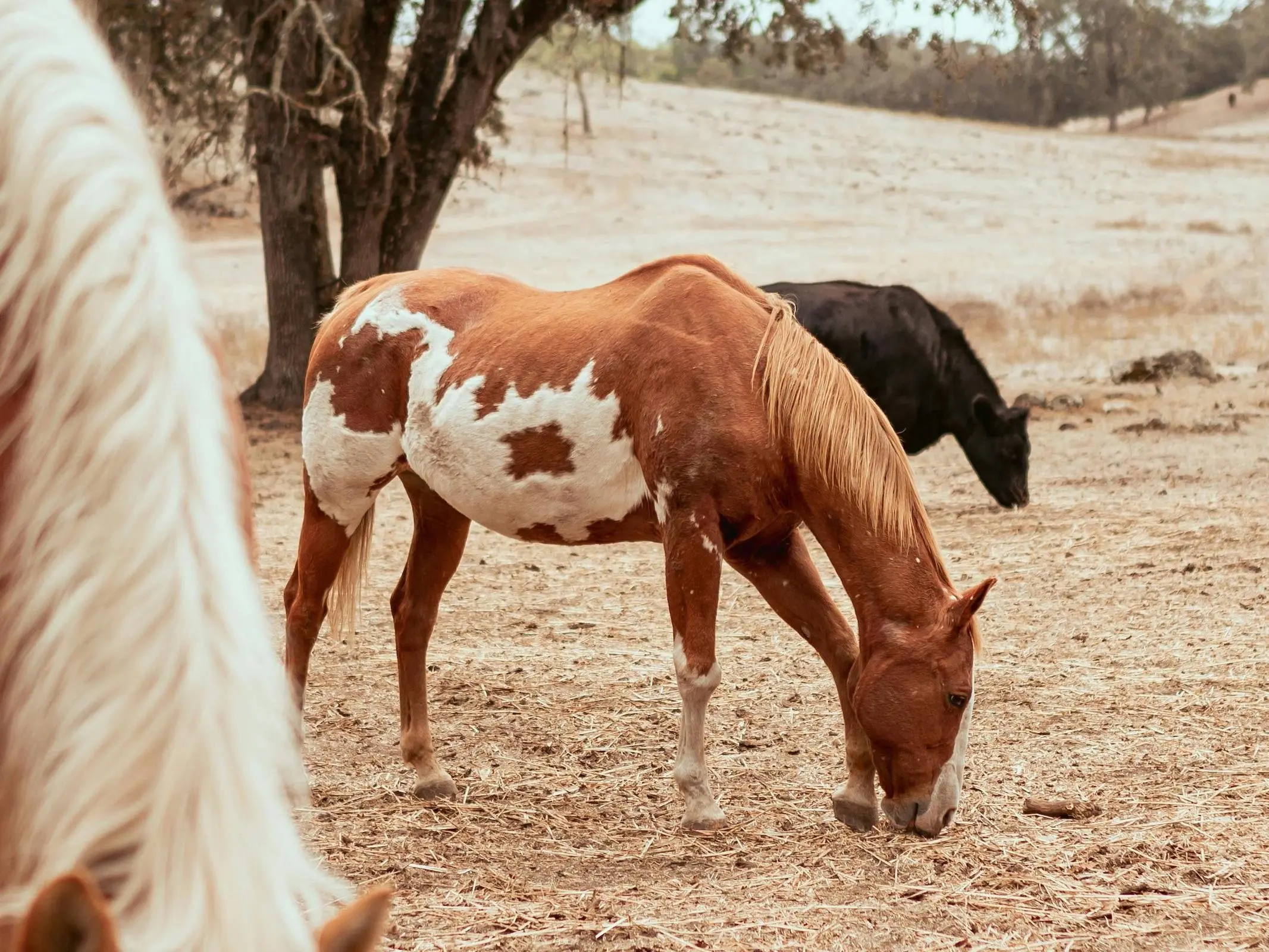 Overo
OveroNamed for their white spots on a field of color, they range from almost no white with blue eyes, to almost the opposite.
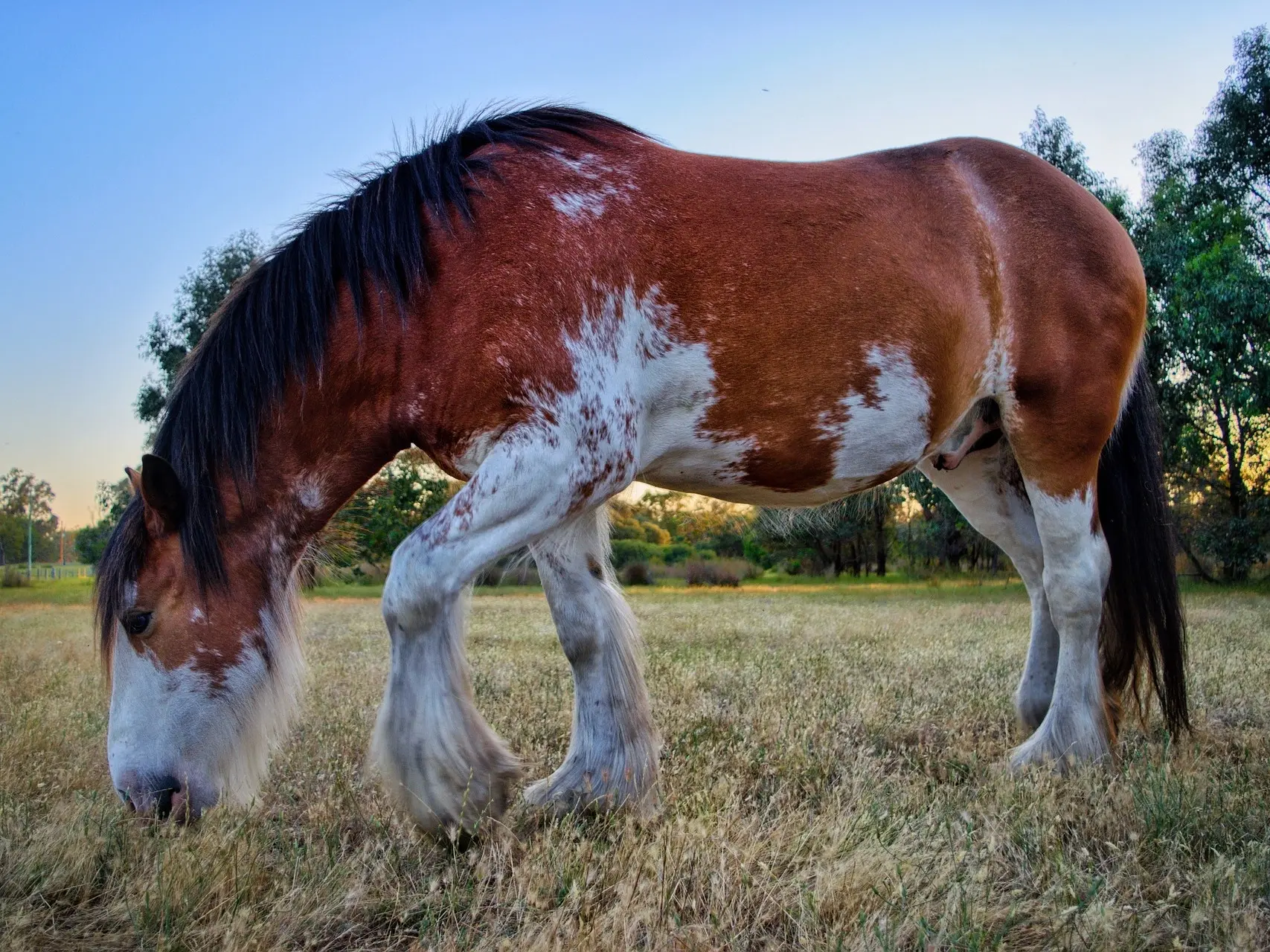 Sabino
SabinoFound in most spotted breeds (especially draft), sabino usually have at least one blue eye and one white leg, roaning and skin freckling.
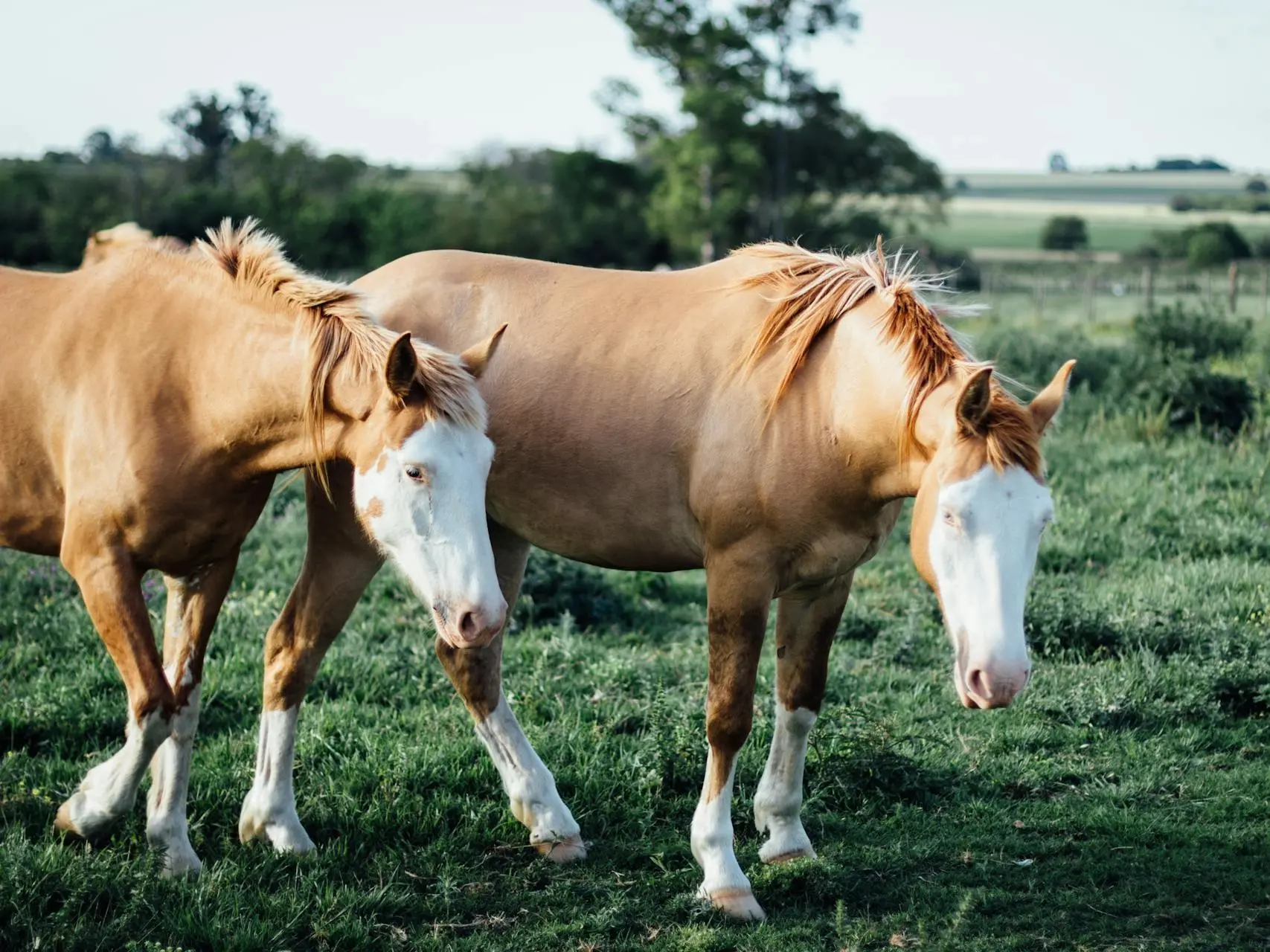 Splashed White
Splashed WhiteNamed because they look like they were dipped in white paint, splashed white can be difficult to distinguish from a sabino animal.
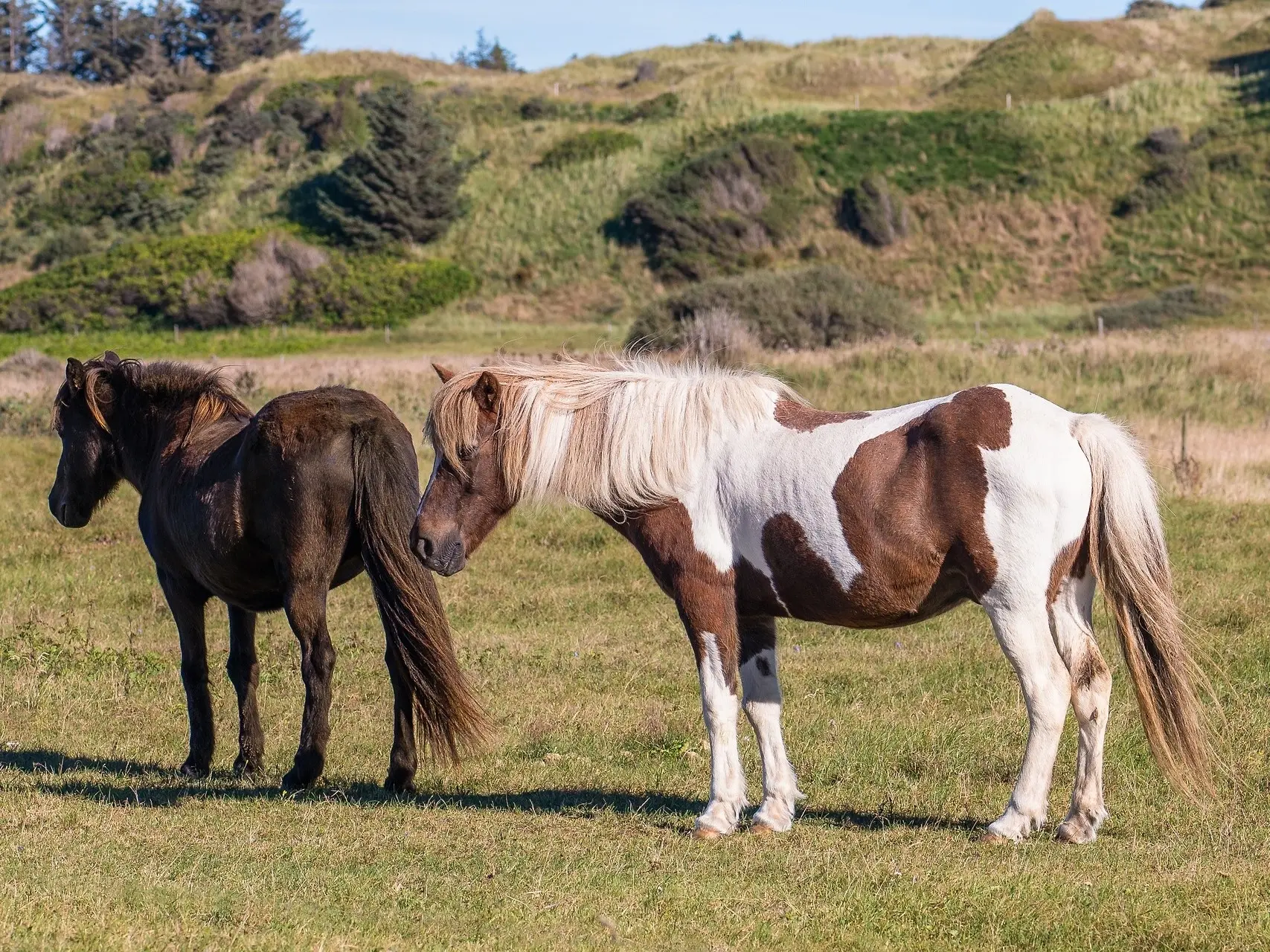 Tobiano
TobianoThe most well-known and easily recognized of the pinto patterns, tobianos usually have as solid colored head and brown eyes.
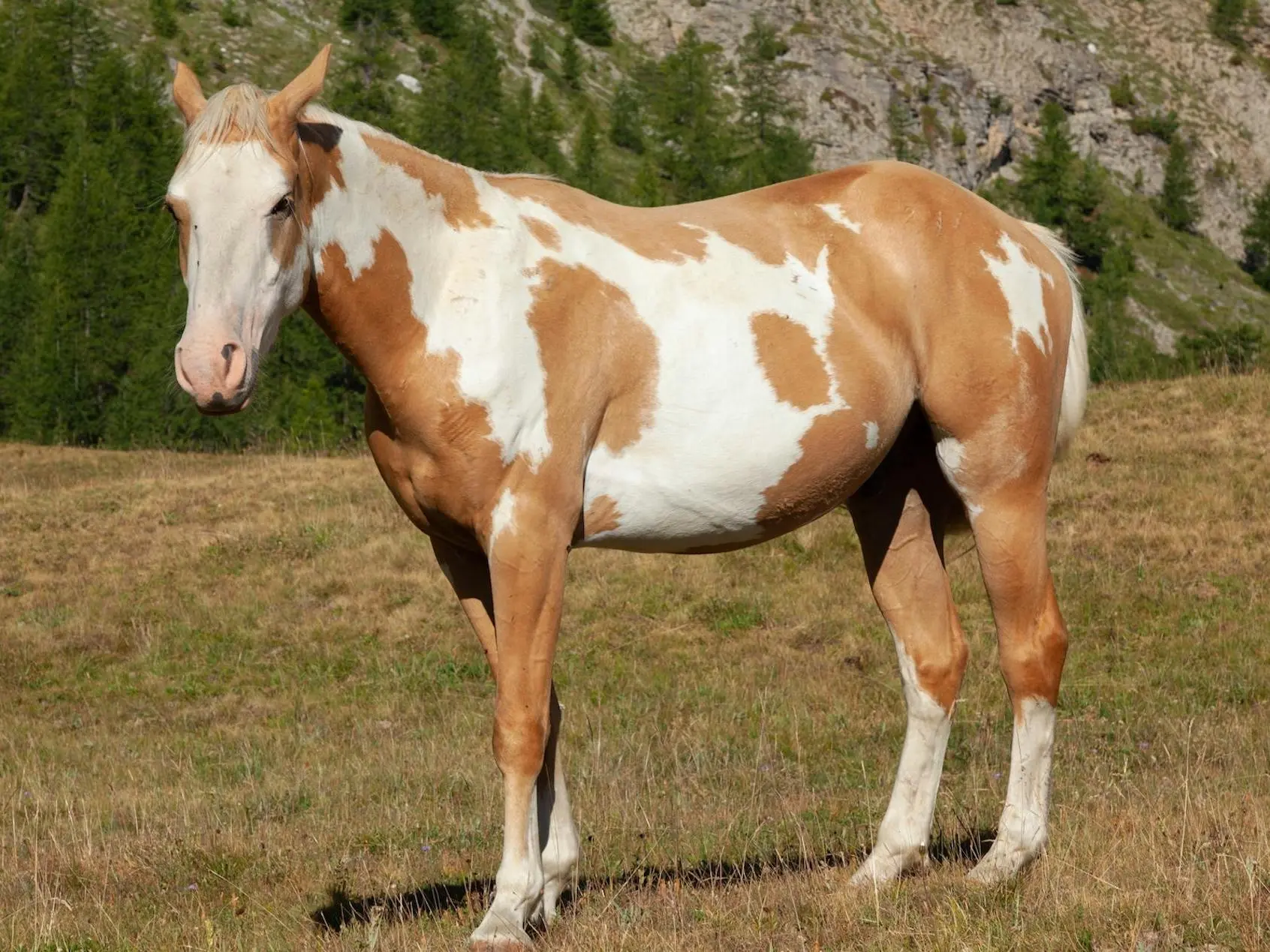 Tovero
ToveroOften found with patches of color on a white base, tovero pintos have some of the most interesting and spectacular patterned coats.
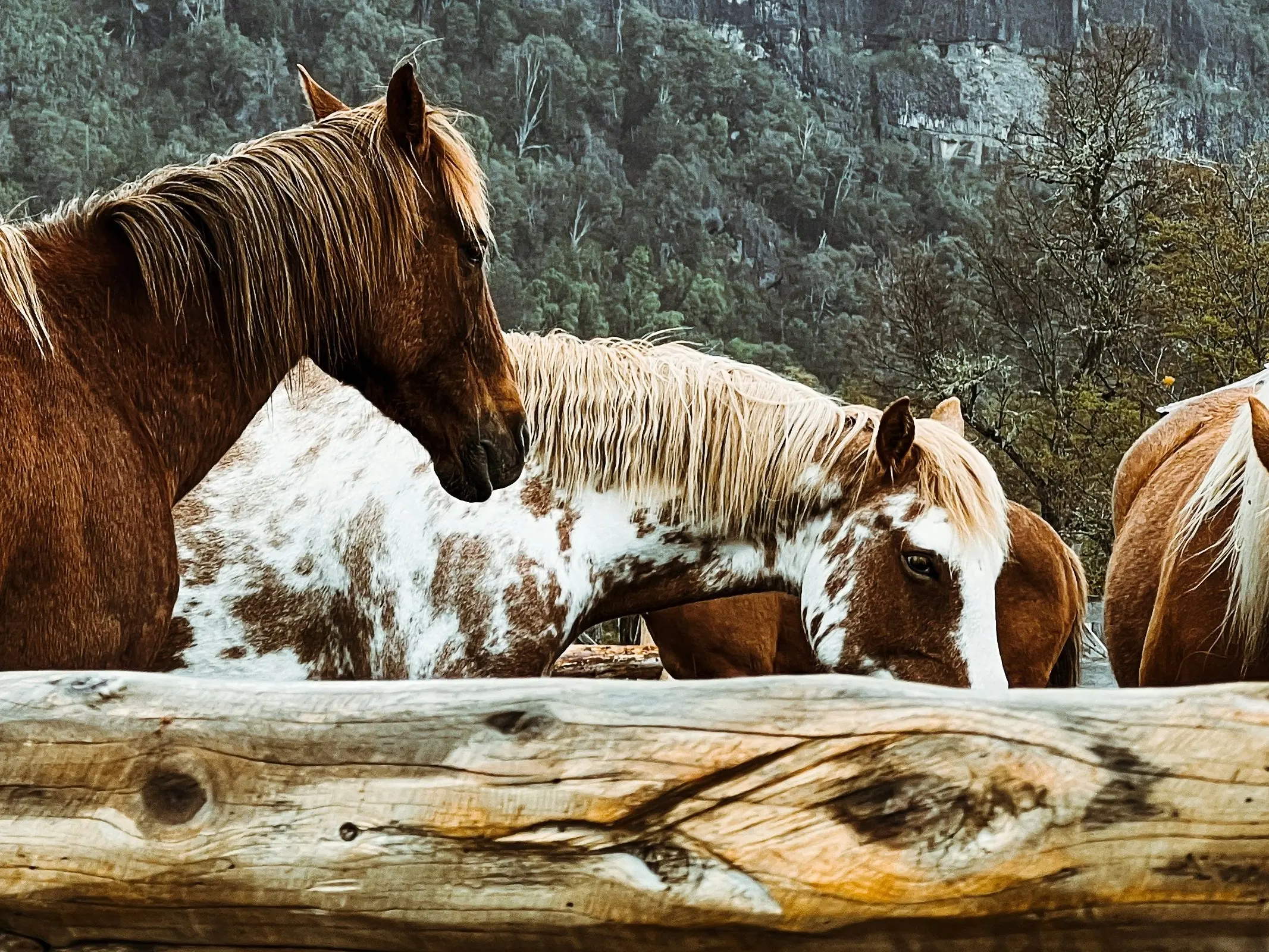 Manchado
ManchadoA very rare pattern found almost exclusively in Argentinian breeds, manchado looks like it is battling with a leopard appaloosa pattern.
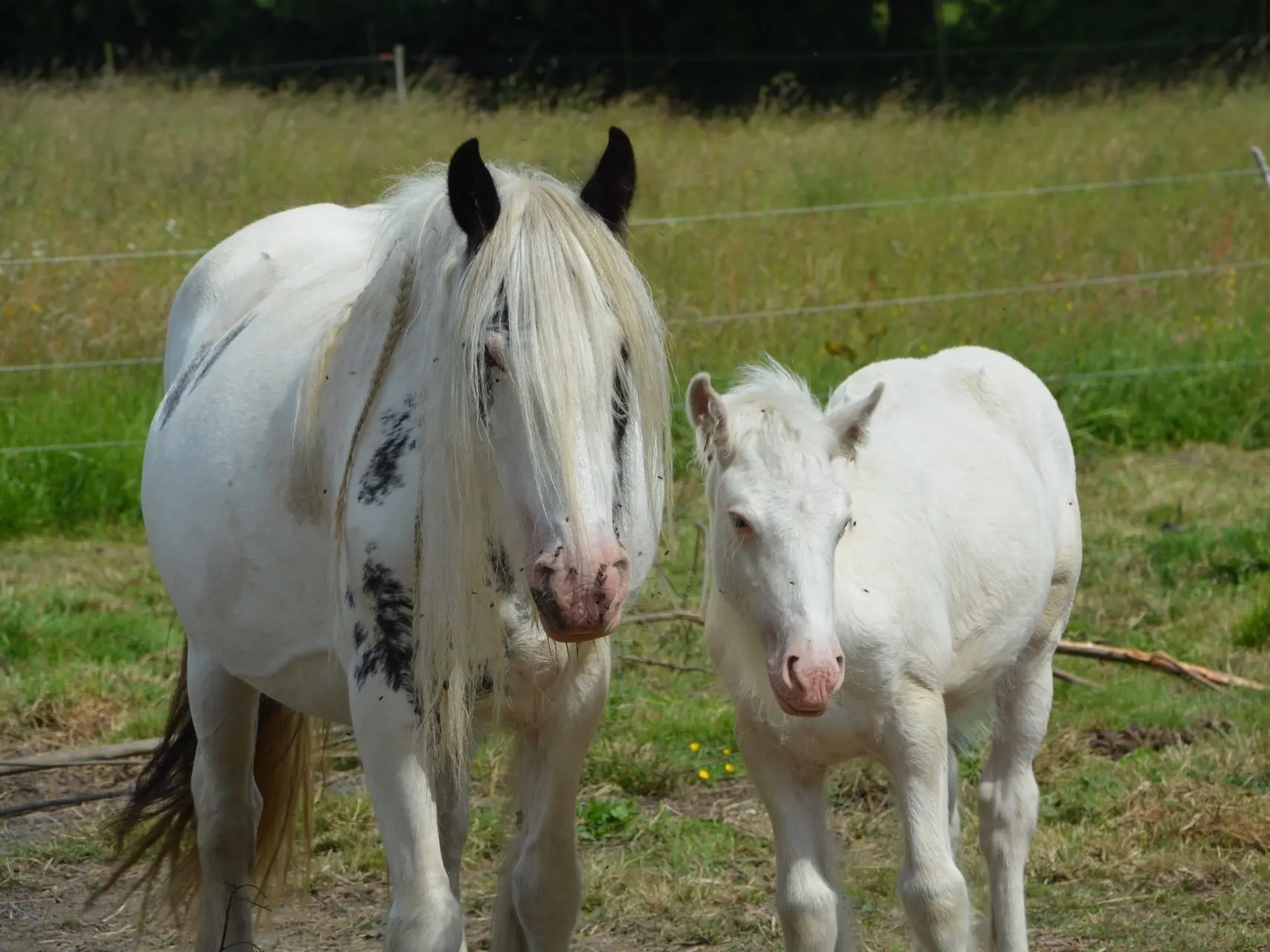 Dominant White
Dominant WhiteIn the sabino family of patterns and often mistaken for other colors, dominant white can be pure white and often considered ‘true whites’.
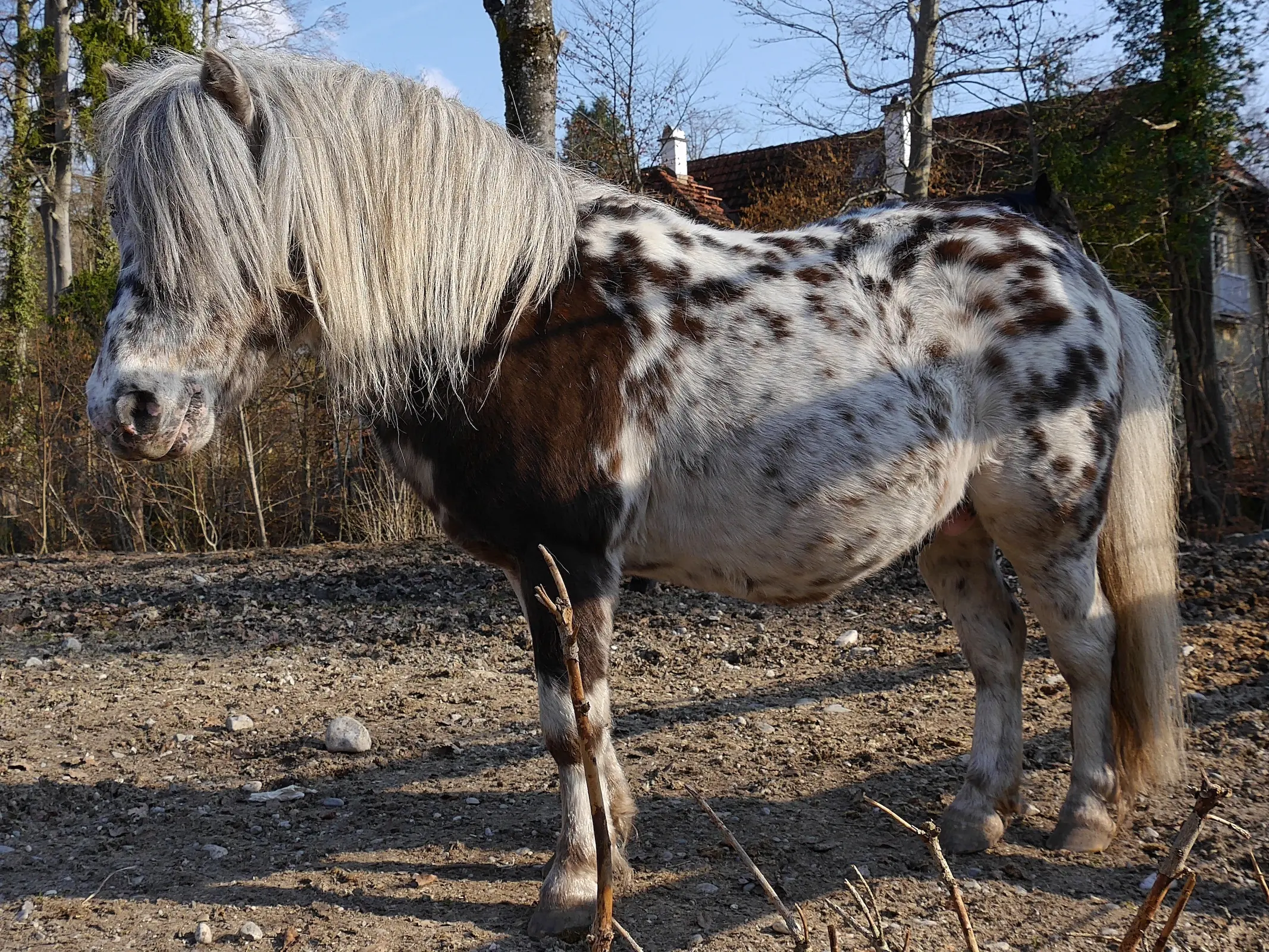 Pintaloosa
PintaloosaThe result of a pinto white pattern and an leopard white pattern mixed together. This combination is rather rare and difficult to breed for.
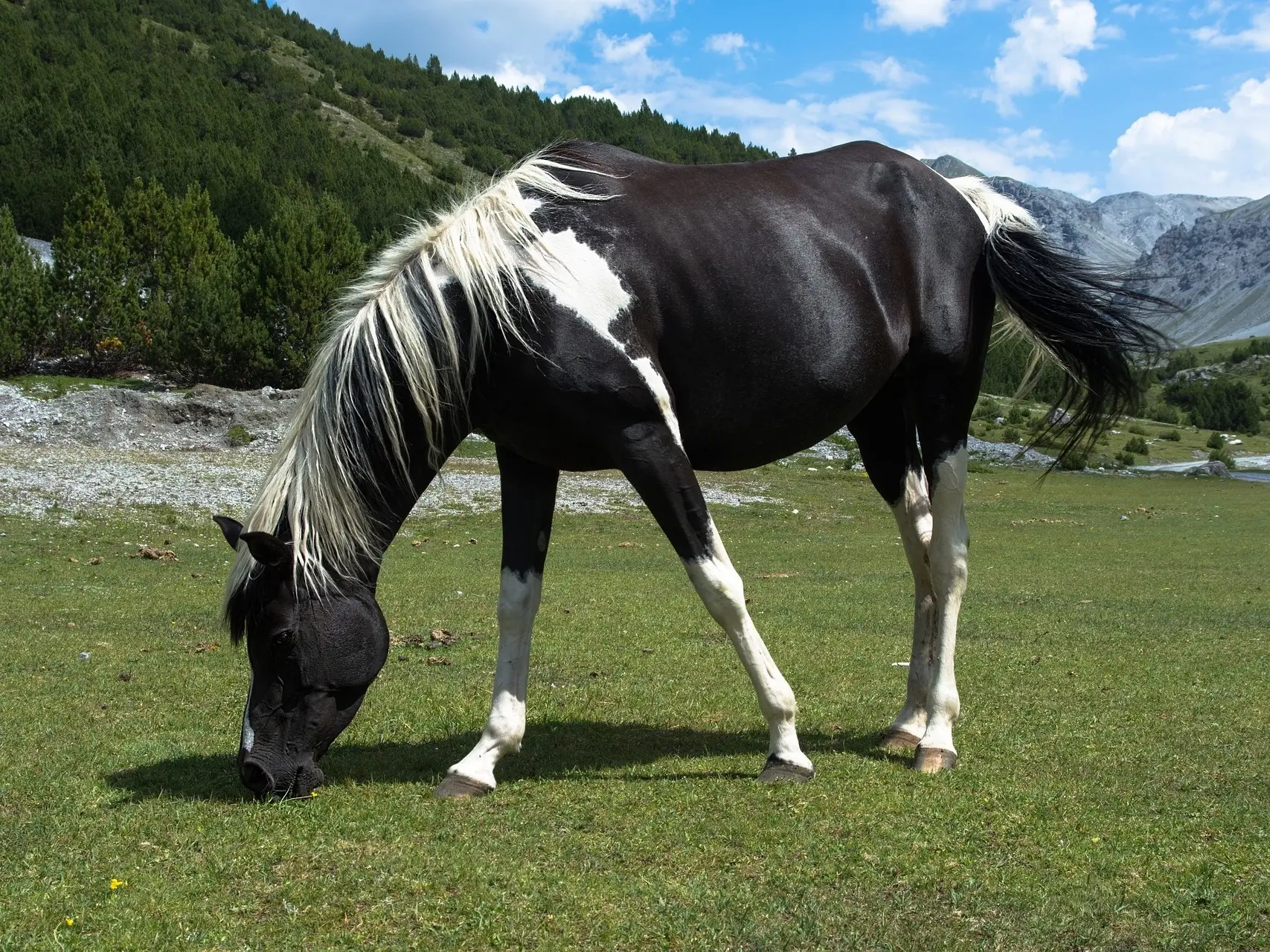 Piebald
Piebald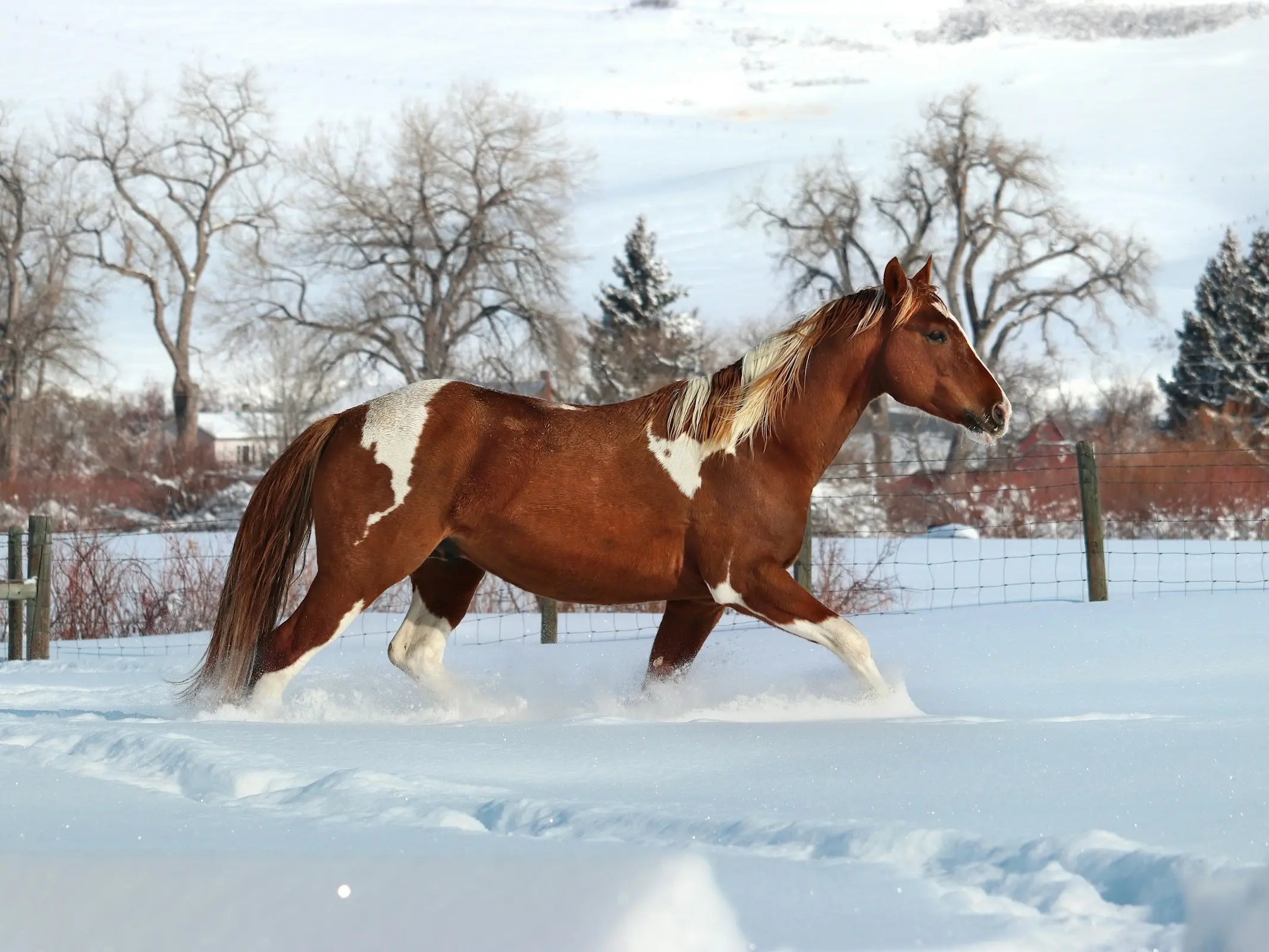 Skewbald
Skewbald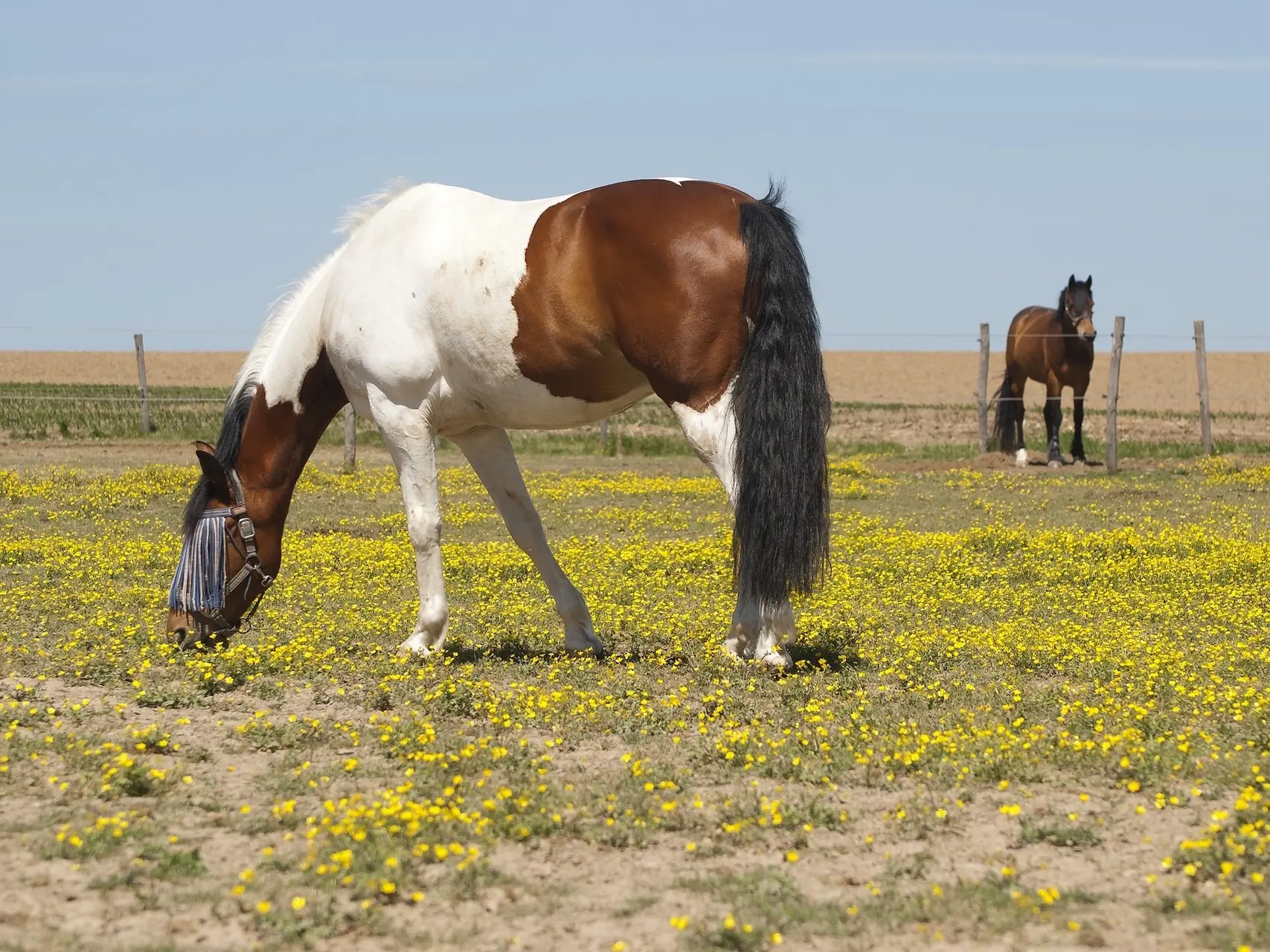 Tricolor
Tricolor